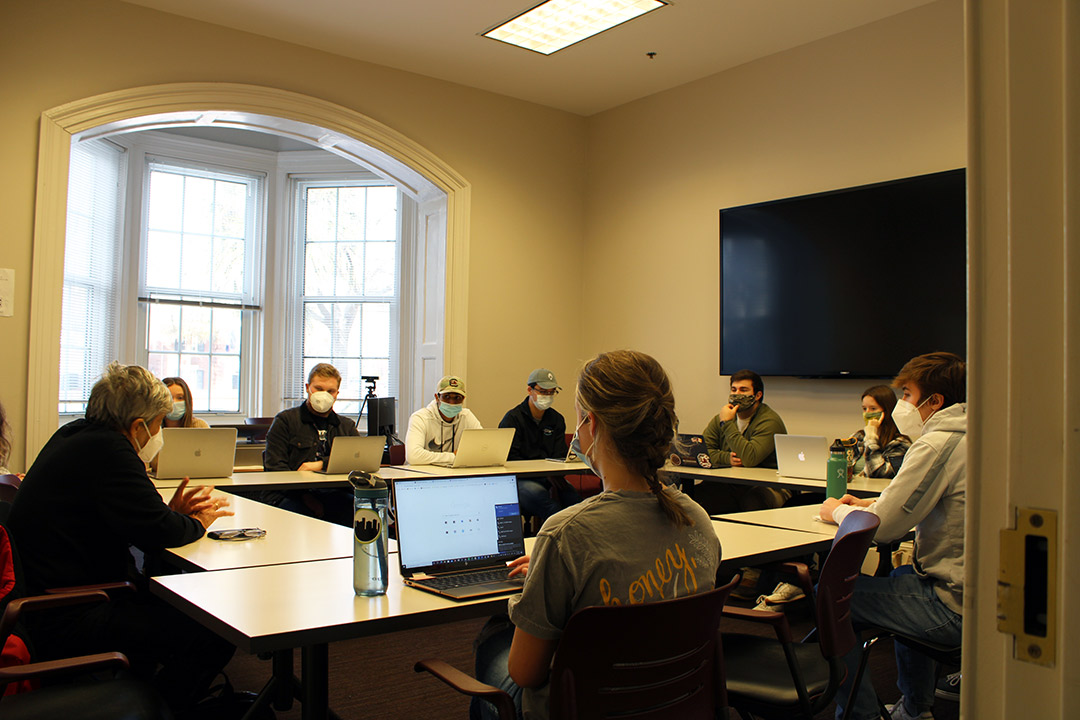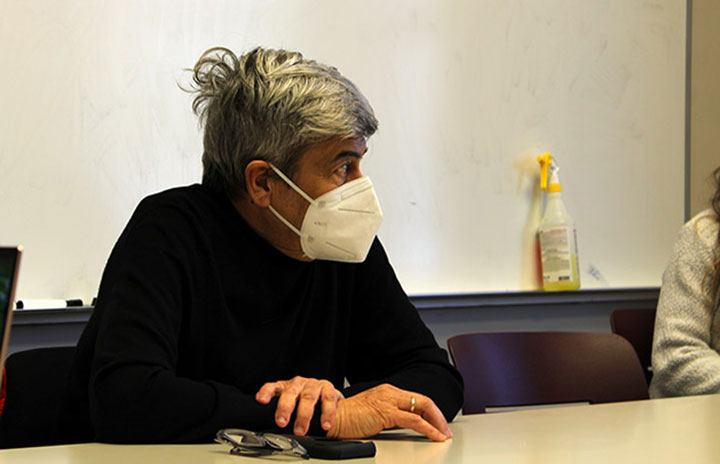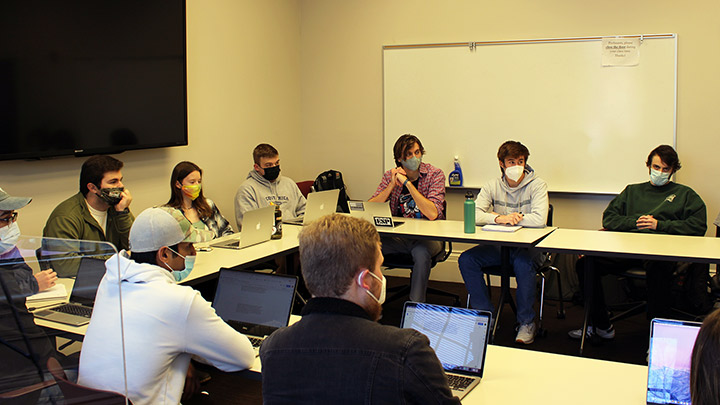UofSC professor Josef Olmert has taught an in-person class on Middle East Politics since 9/11. But he and other professors had to adapt to online teaching during the pandemic. Photo by Jacob Gamble.
Two years into the COVID-19 pandemic, professors at the University of South Carolina continue to grapple with the challenges of virtual learning and uncertainty surrounding the future of higher education.
“During that time, for all of us who had not ever really taught online before, it was something so new trying to figure out how to adjust our styles,” said Kelley Fink, an instructor for University 101, a course that helps freshmen transition into college life.
While most classes were online in Fall 2020, there were some exceptions to that rule. Fink’s freshman course was one of those in-person classes.
“Students who were in my University 101 class for the last two years have always talked about how they appreciated that class because it was in-person,” Fink said. “It was the one time of the week that they felt like they were seeing other students – we always had a really high attendance level in the class because of it.”
Staff shortages meant fewer people had to do more work to keep campus operational throughout the pandemic, said Fink, who is also the assistant director of business operations in the university’s housing department.
“We had a lot fewer people in the field because people didn’t feel comfortable coming back,” she said.
About 55% of college faculty members have “seriously considered either changing careers or retiring early” due to stress caused by the pandemic, according to a 2021 study by The Chronicle of Higher Education.
Other professors at the university have expressed frustration with the hybrid system of instruction introduced in Fall 2020.
“The hybrid program was a real nightmare,” said Josef Olmert, a political science professor and Middle East expert who has taught at UofSC for 11 years. “It took me a little while to even get used to it technologically, but beyond that, in terms of the content and how to deliver it.”
Professors have also struggled to engage with students through virtual instruction.
“I really like to stand in front of the class and see everybody and talk to everybody,” Olmert said. “And it’s much more difficult to do it on Zoom.”
While some professors recognize the benefits of online learning, they understand its limitations.
“The problem with online teaching, I think, is that most people can’t do it – they’re not trained to do it,” said Stan Dubinsky, an English professor at UofSC with a PhD in linguistics. “I think that in many ways, our best thinking and our best learning is inspired out of live interactions. That’s where we learn best.”
Dubinsky also blamed faculty for the lack of in-person learning.
“I have no high regard for [faculty] who’ve been hiding behind masks, hiding behind the computers.”
He credited the university with handling the pandemic effectively, saying that they had to “walk a fine line” to appease everyone. However, he believes that faculty – especially younger faculty – presented a roadblock to normal campus life.
“These people are the most skittish, cowardly, fearful people I know – our faculty who are 20 and 30 years younger than me,” Dubinsky said.
It’s still unclear when campus operations will return to normal. Until then, faculty and students will continue to adapt to online learning and the challenges of college amid a pandemic.
ABOUT THE JOURNALISTS
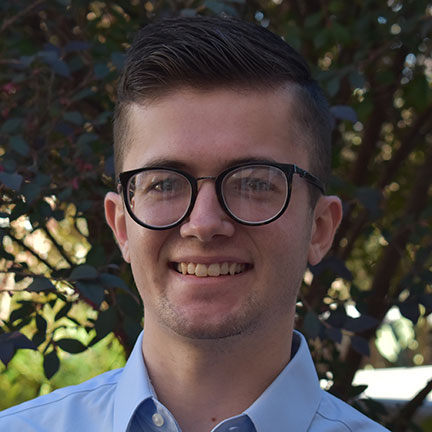
Jacob Gamble
Jacob Gamble is an aspiring political operative from Summerville, South Carolina. Deeply involved in politics, Gamble currently works for the South Carolina House Democratic Caucus as their press secretary and has previously worked for the White House, the Biden presidential campaign, and several other presidential and local campaigns. In his free time, Gamble watches movies and is currently writing a screenplay.
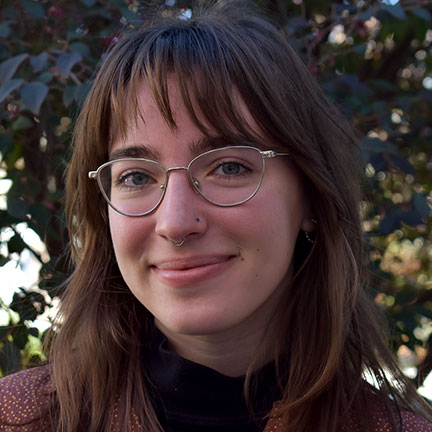
Carson Peaden
Carson Peaden is a senior multimedia journalist with a passion for the arts. From Charleston, S.C., she believes art is integral to a community and enjoys telling stories which highlight local artists and their craft. After working on Garnet & Black, UofSC’s magazine, Peaden acquired an interest in magazine writing and dreams of working for a local magazine. In her free time, she likes to read and write poetry and short stories.

